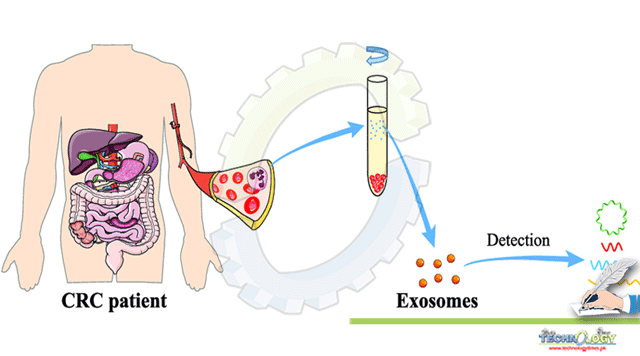Exosomes can be used as diagnostic marker for diseases. Exosomes are cell derived vesicles which contains proteins, lipids, mRNA, receptors, immune regulatory molecules and nucleic acids.

By Sonia kiran
Exosomes range in size from 30-150 nm in diameter. Exosomes can act as early stage diagnostic tools as exosomes carries different protein biomarkers which are associated with disease. Exosome concentration increases in body fluid which may be blood, urine etc. having different protein or nucleic acid etc. depending on the disease that which types of exosomes are present that is having which biomarker. This early detection is considered as robust tool for efficient treatment of various chronic diseases cancer, autoimmune, infectious, and inflammatory diseases. They are different from extracellular vesicles such as micro vesicles and apoptotic bodies in composition and structure. Exosome secretion is a constitutive mechanism involved in both pathological and physiological conditions but in diseased condition their production is increased and are released into body fluid. , including bile acid, blood, breast milk, urine, cerebrospinal fluid, and saliva, suggesting that exosomes play a prominent role in physiological regulation response and disease progression. Exosome content depends on the cell type and cell’s physiological and pathological conditions.
Advantage of using exosomes as biomarker is that they present antigen (pathogen) on its surface as well as they are highly stable which can help in diagnosis quantitatively. Proteins which are present in healthy person and patient are much diverse and related to and show resemblance with various diseased condition cancer, liver, renal, kidney, and brain diseases.
Proteins as diagnostic marker for exosomes.
Many proteins have been identified as diagnostic marker for example CD63(protein) is highly expressed in exosomes in melanoma( skin cancer) patients have high number of exosomes secreted in plasma having CD63 protein high in number as compared to healthy patients. So it is a potential biomarker for cancer diagnosis. Another protein CD81 (Cluster of differentiation protein 81) is highly expressed in exosomes with patients of hepatitis C this protein is associated with inflammation. In lung cancer patient’s two proteins CD151, CD171 are highly expressed in exosomes in their blood. Serum exosome microRNA or noncoding RNA analysis shows promising results in breast cancer biomarker identification.
Reference:
Lin, J.; Li, J.; Huang, B.; Liu, J.; Chen, X.; Chen, X.-M.; Xu, Y.-M.; Huang, L.-F.; Wang, X.-Z. Exosomes: Novel Biomarkers for Clinical Diagnosis. Sci. World J. 2015, 2015, 657086, DOI: 10.1155/2015/657086
Lakhal, S.; Wood, M. J. A. Exosome Nanotechnology: An Emerging Paradigm Shift in Drug Delivery. BioEssays 2011, 33 (10), 737– 741, DOI: 10.1002/bies.201100076
Jeyaram, A.; Jay, S. M. Preservation and Storage Stability of Extracellular Vesicles for Therapeutic Applications. AAPS J. 2018, 20 (1), 1, DOI: 10.1208/s12248-017-0160-y
Clayton, A.; Court, J.; Navabi, H.; Adams, M.; Mason, M. D.; Hobot, J. A.; Newman, G. R.; Jasani, B. Analysis of Antigen Presenting Cell Derived Exosomes, Based on Immuno-Magnetic Isolation and Flow Cytometry. J. Immunol. Methods 2001, 247 (1–2), 163– 174, DOI: 10.1016/S0022-1759(00)00321-5